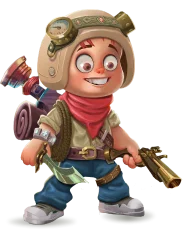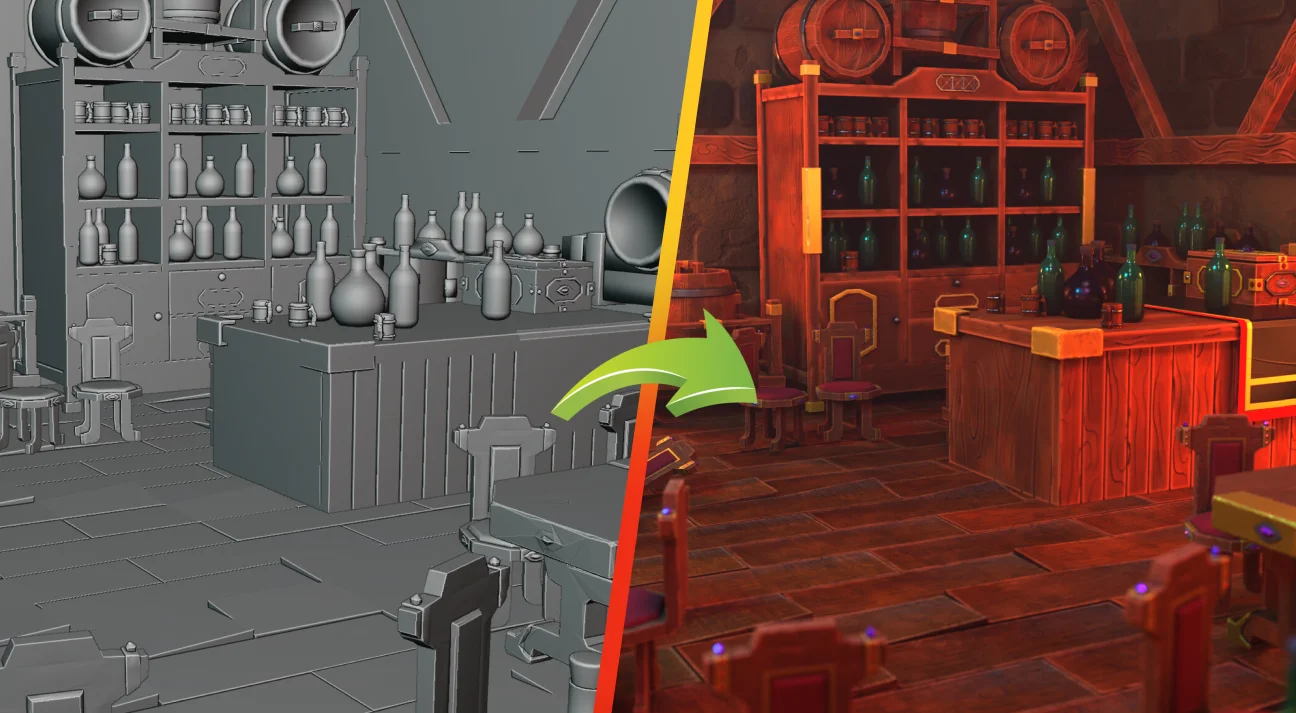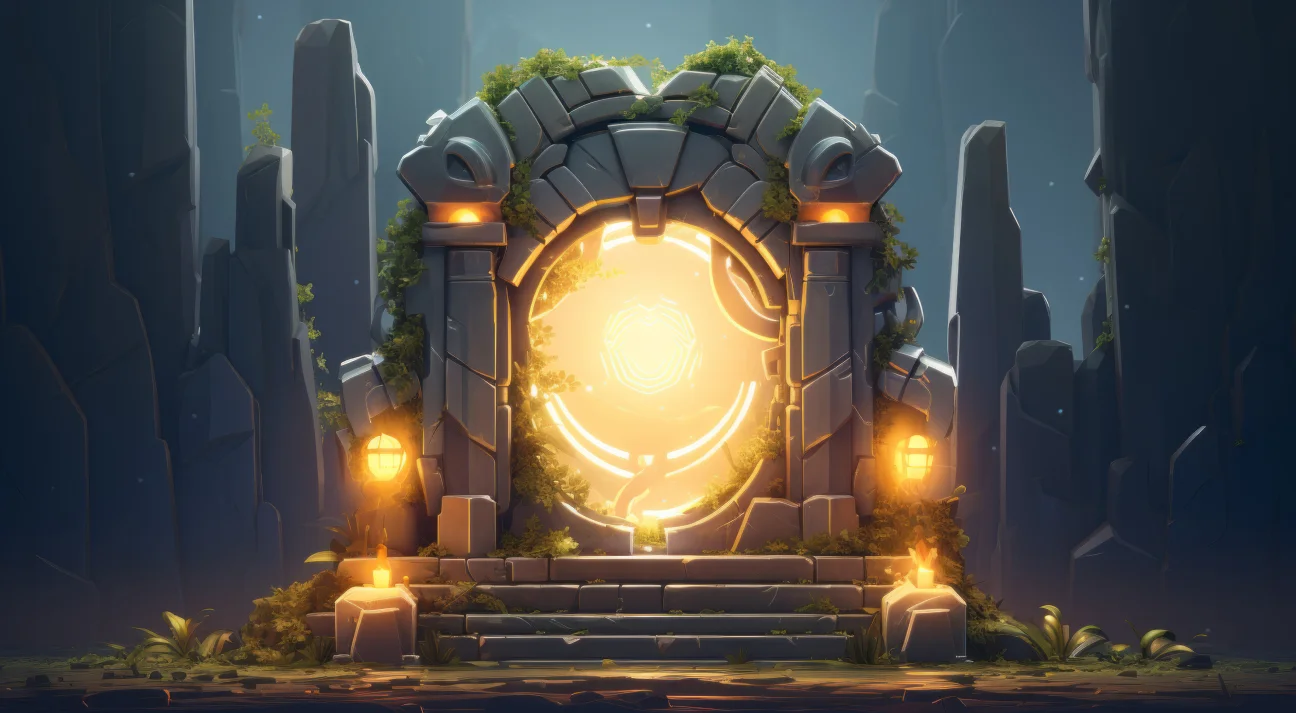
How to Successfully Hire a Game Design Company?
In the competitive world of game development, selecting the right game design company can make or break your project. This hiring process is all about finding the right skills and teamwork. You need to consider factors like company culture, scalability, and their ability to meet deadlines and budgets. However, by thoroughly vetting potential partners and aligning their strengths with your project requirements, you can confidently choose a game design company that not only meets but exceeds your expectations. This blog will help you do so.
Starting a game project is exciting, but finding the right game design company can be daunting. For any individual or company, outsourcing a project to a remote company is a strategic move, offering access to a wider pool of expertise and resources. However, the challenge lies in finding the best team to understand and execute your vision.
But how do you vet potential partners effectively from a distance?
How do you ensure they have the technical skills and creative prowess to craft your game with precision?
What steps can you take to mitigate potential risks and ensure the project stays on track?
How can you gauge a company’s reliability and past performance through references and reviews?
Finding answers to these questions is not enough. There are many hows, whys, ifs, and buts in the process, and you will come across them while interacting with game development companies. To help you with the process, this guide we’ll walk you through the steps of identifying and hiring a game design company that aligns with your goals and aspirations.
Step-by-Step Process to Hire a Game Design Company
The gaming industry has evolved with time, and due to the change, game design companies have upgraded their skills, portfolio, and overall expertise. You need to look for a reliable company to sustain in the market competition. To hire a game design company, you have to follow the below-mentioned process.
Comprehend Your Game Requirements
Start by asking yourself some fundamental questions. For example:
What kind of game do you want to create?
Is it a puzzle game, battle royale game, an action adventure, or something entirely different?
What is the main plot or theme?
Who are the characters, what are their traits, and how do they interact within the game world?
Next, think about the gameplay mechanics—how will players interact with the game? Will there be levels, challenges, or quests? Consider the visual style and atmosphere—are you envisioning realistic graphics, cartoonish characters, or a specific art style?
It’s also essential to define your target audience—who are your players, and what do they enjoy in games? Will your game be for casual players, hardcore gamers, or a niche audience?
Lastly, outline your technical requirements—do you need the game to be playable on specific platforms like PC, mobile devices, or consoles?
By comprehensively answering these questions, you’ll have a detailed blueprint of your game requirements. This clarity will guide your discussions with best game design companies, ensuring that the team you choose understands your needs and can design the game effectively.
Look for Potential Video Game Design Companies
Take your time to research and compare different video game design companies online and browse through their profiles. Take a dig in your personal networks and ask people if they have any recommendations. Personal networks and the internet can help you discover companies that may not be as well-known but still have the skills and expertise you need. List out potential companies and move to the next step.
Shortlist Companies Based on Experience and Expertise
To shortlist companies, consider the experience level of each company and team size. Check how long they have been in business and the number of projects they have completed. Companies with more experience are generally more reliable and better equipped to handle potential challenges during development.
Look into the expertise of their team members. A strong team with diverse skills in game design, programming, art, and sound will be able to cover all aspects of your game development needs. Pay attention to their portfolios and previous projects to see if their style matches what you’re looking for in your game.
Go through client reviews and testimonials to collect insights into their reliability, expertise, and customer satisfaction. Once you’ve identified potential companies, reach out to them directly. Send inquiries related to game design services, processes, and availability.
Discuss Your Project Requirements With Them
When discussing your game requirements with a game design company, start by clearly outlining your vision for the game. Describe the main concept, key features, game character design requirements, target audience, and any other specific design elements you have in mind. Provide the required details to make sure the company understands your idea fully.
During the conversation, pay attention to how the company responds. A good company will ask thoughtful questions, show genuine interest in your project, and provide constructive feedback. They should offer suggestions that enhance your idea and demonstrate their understanding of game development processes.
Evaluate their communication skills by noting how clearly and promptly they respond to your inquiries. Additionally, inquire about their project management approach, including timelines, milestones, and how they handle feedback and revisions.
Assess their enthusiasm and willingness to collaborate. A company that is excited about your project and committed to working closely with you is more likely to deliver a game that meets your expectations. By measuring their responsiveness, expertise, and eagerness to engage with your project, you can determine if they are the right fit for bringing your game idea to life.
Understand Their Development Process
Start by asking them to explain their workflow from start to finish. For example, how many stages of game development do they follow? Their process must include concept development, design, coding, testing, and final launch.
A good company will provide a clear and detailed explanation of each stage. They should also outline how they involve you in the process, such as through regular updates and feedback sessions. Pay attention to how they describe their methods for managing timelines and budgets.
Ask about their use of project management tools and how they handle changes or unexpected challenges. Their ability to clearly communicate these aspects will give you confidence in their organizational skills and reliability.
Evaluate their response by noting how thoroughly they answer your questions. Are they transparent about their process? Do they provide specific examples from past projects? A company that offers detailed and honest insights into the development process demonstrates professionalism and experience.
Also, consider their approach to quality assurance and testing. Ask how they ensure the game is free of bugs and glitches before release. By understanding their development process and measuring their response, you can assess whether the game development company is capable of delivering a high-quality game that meets your vision and standards.
Enquire About Their Employees
Usually, companies have 20 to 1000+ employees to provide game development services. However, the size and specific composition of the team can vary depending on the scope and complexity of the game project. Smaller indie studios may have team members who handle multiple departments, while larger studios may have specialized roles and departments.
For your game, you need to hire game developers, artists, sound designers, animators, QA specialists, a project manager, etc. Hence, inquire from the company about key members, their roles, and backgrounds to assess their collective expertise.
Ask about their approach to game design, from initial concept development to final delivery. This includes how they handle game mechanics and which game design principles they follow. How do they work on user interface, gameplay balancing, and user experience design? A structured and systematic approach to these aspects is essential for delivering a polished and engaging game.
Evaluate their capabilities and resources. Determine if they have in-house teams or reliable partners for various aspects of game development, such as art creation, programming, audio production, and quality assurance. Scalability is another critical factor—if your project expands or requires additional resources, how adept are they at accommodating these changes without compromising quality?
Check Technical Support and Maintenance
Whether your game is a small indie project or a large-scale multiplayer title, your chosen company must demonstrate the capability to scale its support efforts accordingly. To start with, assess their approach to ongoing support.
Look for companies that offer comprehensive support packages tailored to your specific needs, including regular updates, bug fixes, and troubleshooting services.
The company must have a structured system in place for handling technical issues promptly, preferably with dedicated support staff who are knowledgeable about the game’s architecture and technology stack.
Get insights about their maintenance strategies. The company should have protocols for monitoring game performance, identifying potential issues proactively, and implementing necessary updates or patches. It includes compatibility updates for new platforms or operating system versions for maintaining a seamless user experience across different devices.
Compare Involved Costs
By now, you may be in touch with 4 to 5 companies and the rest of the companies might have got filtered out. In this step, we will talk about budget and contract terms. Usually, budget is foremost for many individuals but in our opinion quality is foremost. So, after ensuring the quality work, we suggest you compare the companies according to the rates they charge.
Console, PC, or mobile game development is a profitable investment only if you know how to choose a company offering budget-friendly services. Start by requesting detailed proposals from each prospective company outlining their pricing structure.
Look beyond the initial development costs to include ongoing expenses such as maintenance, updates, and technical support post-launch. Compare these costs against the services and features offered to gauge the overall value proposition. Companies situated in different regions charge differently as per their cost of living. Here’s a chart for the comparison.
| Country | Rate, $/hr |
| US | $150 – $250 |
| UK | $100 – $200 |
| Germany | $50 – $120 |
| Ukraine | $25 – $55 |
| India | Starting from $25 |
Looking at this chart, you can have an idea of costs involved and how much the company may charge. However, these are basic charges and they can vary according to flexible hiring models companies have to offer. Hence, you must come on terms with your chosen companies and compare their rates accordingly.
Negotiate the Contract Before Making the Final Decision
Next, scrutinize the contract terms. Pay attention to key factors such as project timelines, milestones, payment schedules, and deliverables. Ensure that the contract specifies clear expectations for both parties regarding project scope, revisions, and intellectual property rights.
Look for flexibility in the contract terms that accommodate changes in project scope or timelines, and clarify the process for resolving disputes or discrepancies. Don’t get tied up to never ending contracts with unnecessary terms and conditions. Clarify everything and go with the company who is providing the best services at the best price.
Mistakes to Avoid When Choosing a Game Design Company
You have selected the game design company, but they are not responding well or keeping the communication transparent. These strange or unexpected turns of events might surprise you. So, you must conduct proper research and avoid common pitfalls that lead to fraudulent activities. Here are the most common mistakes to keep in mind:
Inadequate Research
There are chances that the company might have done frauds, or have a history of leaving the project midway, or did not match up to quality standards. This inside information is hardly available online but you cannot miss it. That’s why you must take the time to research potential companies thoroughly, review their portfolios, check client testimonials, speak to their clients, and assess their industry reputation.
Poor Portfolio Evaluation
Failing to verify a company’s track record through references, case studies, or testimonials is a grave mistake. There are many game development companies with fake portfolios. You’ll lose your investment and time if you end up signing a contract with them. Hence, you must contact their previous clients and employees to verify the portfolio they have shown online.
Making the Choice Based on Finances
There is a thin line between cost-effective and cheap. Opting for the cheapest option without considering the work quality standards may have negative consequences. That’s true that budget is important but you should prioritize value and what the company can deliver within your budget constraints rather than simply choosing the lowest bidder.
Rushing the Decision
Rushing into a decision without thorough research can lead to selecting a company that may not be the best fit for your project’s specific needs. Also, it may create a communication gap, leading to more confusions or misunderstandings in future. So, you must follow the entire process and take enough time to sign the contract. Don’t close the deal in a hurry!
Signing the Contract Without a Detailed Discussion
Companies keep hidden terms and conditions in their contracts. Sometimes they overlap the information to hide these conditions. You might not even understand what they meant with the term and get entangled in it. That’s why you must discuss each and every term with the company in detail and leave no room for confusion. Otherwise, these missed out terms might invite troubles for you during the game design process.
Ignoring Red Flags
Hiring remote game developers or companies is a lengthy process and the company might make mistakes or keep the information away if they are not reliable. For example, they might change the team members, give different budget estimations, put off meetings or calls, fail to have transparent communication, and some other weird things. You must not ignore these red flags and try to find the reason behind their suspicious behavior. It will help you dodge the fraud without suffering any loss.
Ultimately, the right game design company will not only bring your concept to reality but also contribute invaluable insights and innovations to elevate your game’s appeal and overall functionality. By making a well-informed decision based on these considerations, you can pave the way for a successful game development journey that yields outstanding results.

Why 300Mind Should Be Your Top Choice for Game Design?
300Mind is a game development studio known for its innovative approaches and capabilities to craft stunning games. Our designers and artists excel in creating immersive worlds and characters, utilizing advanced techniques in motion capture, procedural generation, and real-time rendering.
Our programmers are adept at implementing complex game play mechanics, AI behavior, and networked multiplayer systems, ensuring a seamless and engaging player experience. We have extensive experience to provide tailored game development services that meet the specific demands of your target audience. Our commitment to excellence ensures that your game meets the highest standards of quality and creativity.
FAQ on Hiring Game Design Company
Finding a reliable game development company involves thorough research. Evaluate their portfolios and client reviews to gauge their expertise and reliability. Verify their technical capabilities and resources. Engage in direct communication to discuss your project’s requirements and ensure alignment.
It is possible to have a say in the process. You can select and hire game designers from the company as per your requirements. During your initial discussions, express your desire to be involved in selecting the game designers and the company will send you profiles of experts and you can choose your team.
India, China, and other Asian countries best hire a game development company. These countries offer a large pool of skilled developers at competitive rates. You can also choose companies from countries like Japan, South Korea, Canada, Poland, Ukraine, and the Philippines.
Hiring a game development company provides access to a skilled team, ensuring high-quality game creation. It offers structured development, efficient project management, and scalability. Companies also provide ongoing support and maintenance, keeping the game updated and functional post-launch. Leveraging their industry experience and resources leads to innovative solutions and a smoother development process.








